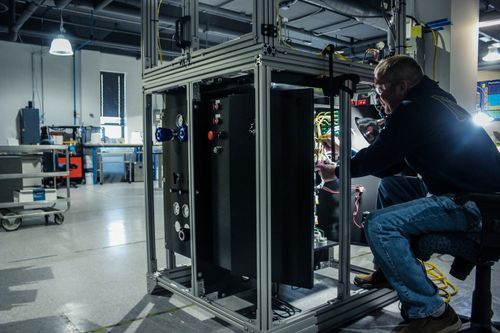Clean energy industry trade group American Clean Power (ACP) plans to continue championing the concept of “grandfathering” in the green hydrogen sector, arguing that it is critical for the economic viability of early green hydrogen projects under the Inflation Reduction Act’s clean hydrogen tax credits, according to sources familiar with the group’s plans.
Grandfathering would allow these projects to adhere to less stringent annual time-matching requirements before transitioning to an hourly regime.
ACP, through its previously released Green Hydrogen Framework, has proposed to grandfather in the early-mover projects under annual time-matching as long as they start construction before January 1, 2029. That’s in contrast to guidance for the 45V clean hydrogen tax credit that would require renewable energy generation associated with green hydrogen projects to be matched hourly beginning in 2028.
The trade group, which consists of 800 clean energy companies, previously argued against too-soon hourly matching in a November white paper. Representatives of ACP did not immediately respond to requests for comment.
In response to the IRS guidance, ACP is seeking to underscore that, without grandfathering, early projects will have to be designed from the start to meet hourly matching requirements, significantly increasing costs and negating the benefits of annual time matching, sources said.
The notice of public rulemaking on 45V was issued on December 26, and is open for public comment for 60 days. The tax credit rules, which would require strict adherence to the so-called three pillars approach for incrementality, temporal matching, and deliverability, are viewed by some in the industry as overly burdensome.
ACP’s position is that the project finance market can handle some changes midstream in long-term agreements, but not fundamental shifts like transitioning from annual to hourly time matching.
This switch could lead to a dramatic decrease in green hydrogen production and a concurrent exponential increase in production costs. Investors, anticipating these risks, might finance green hydrogen production agreements as if they were under an hourly regime from the beginning, thereby eliminating the initial benefits of annual time matching, according to the sources familiar.
A Wood Mackenzie study estimates that hourly time matching requirements could result in a price increase of 68% in Texas and 175% in Arizona, for example.
ACP, according to sources, stresses that the absence of grandfathering would create an economic cliff for agreements straddling both accounting systems. This would add to project costs, potentially discourage customer interest in green hydrogen, and hinder the industry’s maturation, the sources explained. In contrast, grandfathering first-mover projects under an annual time matching regime would ensure competitive production costs, driving demand for green hydrogen, the trade group believes.
Moreover, sources explained that ACP’s position is that the transition from annual to hourly matching without grandfathering would likely necessitate assuming hourly matching from the onset in power purchase agreements, leading to higher hydrogen costs from the start. This could delay green hydrogen industry development and give an advantage to blue hydrogen with early adopters, potentially excluding green hydrogen from the market.








